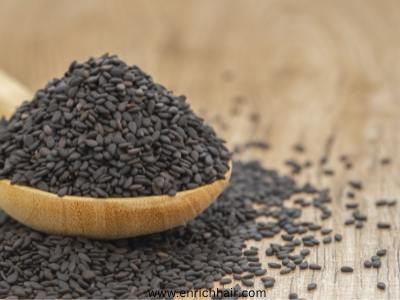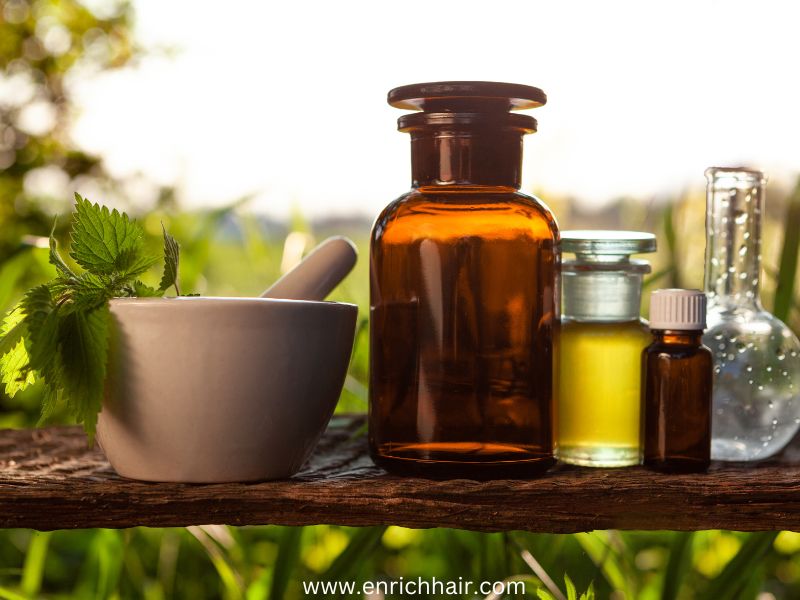Natural Medicine for Hair Fall
Table of Contents
Think of yourself sitting next to your grandmother, and feeling the heat of her stories that have been passed down through generations. That’s how sunnah medicine for hair fall feels—it is like an ancient murmur from the past that gently nudges us towards holistic healing grounded on the blessings of nature. It is more than just a quest to alleviate symptoms; it is a journey in which our bodies and souls are nurtured according to profound insights given by God’s messenger.
Let us look into the traditional remedies and practices that not only strengthen our hair but also bring us closer to our faith as well as the natural world.
Understanding Hair Fall: Causes and Considerations in Sunnah
Hair fall happens when your hair starts falling out more than usual. There can be different reasons for it, like stress, poor diet, or health issues. In Sunnah, it’s believed that keeping yourself healthy and following certain practices can help prevent hair fall. So, understanding why your hair is falling out and taking care of your health the Sunnah way can make a difference in keeping your hair strong and healthy.
The Importance of Natural Medicine for Hair Fall
The healing power of nature was deeply respected in Prophet Muhammad’s (PBUH) teachings. It’s like he knew that there were riches in the earth that could make us remain healthy and young at heart. This seems much like when people relied on what was provided by nature for their health care, doesn’t it?
These natural remedies make them unique; they are so pure and straightforward. They seem almost like gentle whispers from the Earth offering solutions without any unnecessary complications or side effects. They feel as though they speak directly to our bodies—leading us back into balance, harmony, and health once more.
Sunnah Foods and Dietary Habits for Healthy Hair
-
Incorporating Dates and Honey in the Diet:

Incorporating dates and honey into one’s meals is not only delicious but also beneficial to hair growth. Dates contain many vitamins and minerals that aid in strengthening the hair, while honey seals in moisture which helps keep it soft and shiny.
-
Olive Oil – Its Significance Plus Application Methods:

Olive oil is good for cooking and hair care! This natural product is packed with various nutrients like vitamins A, E & K alongside antioxidants that promote healthy hair from roots to ends. It can thus be used as a hot oil treatment or applied directly onto dry strands as a moisturizer that stimulates new growth when massaged into your scalp.
-
Black Seed (Nigella Sativa) Consumption about Hair Health:

Consider black seed as being a superfood for your hair. Whether ingested or applied topically through its oil extract; this ingredient contains lots of useful elements responsible for strengthening follicles and reducing shedding altogether. Furthermore, it is mild enough not to cause any irritations on sensitive skin so try adding some to meals daily or taking capsules with other supplements to achieve healthier-looking locks!
Herbal Remedies as Natural Medicine for Hair Fall

As a method of stopping hair from falling out, there are some great herbal remedies in the Sunnah. These homemade cures have been used over centuries and continue to be valued for being effective.
Aloe Vera: The Prophet’s Plant for Strong Hair: Additionally, the use of aloe vera is another revered suggestion from the sunnah that nature herself offers us as far as our hair health is concerned. This amazing plant has always been known to possess soothing properties among many others which makes it best suitable for strengthening individual strands of hairs thus causing them to grow longer and faster.
Benefits of Henna in Promoting Hair Growth: What most people don’t realize about henna is that its benefits go beyond making beautiful patterns on your skin – they can help improve your scalp’s overall condition too! Over time this natural conditioner will leave you with shiny strong locks full of life; not only does it protect against environmental damage but also acts as an excellent dye for covering those grey strands!
Hair Care Using Sidr (Lote Tree) Leaves The Sidr tree or Lote-tree as it was so called by Prophet Mohammad (pbuh) himself happens to be one more among his favorite trees when talking about taking care of hair according to Sunnah. It is believed that using leaves from this particular type of tree helps nourish scalps along with strengthening follicles hence reducing falls significantly while promoting healthy growth at the same time; therefore incorporating sidrs into a routine would mean giving hairs what they need most – natural ingredients recommended directly by Allah through His Messenger.
Reviving and Caring for the Hair by the Sunnah
The Sunnah offers several recommendations for strengthening and maintaining healthy hair. These practices are time-tested and have proven beneficial over centuries of use.
Sunnah Ways to Cleanse and Wash Your Hair: Simplicity as well as cleanliness are two key areas when it comes to cleansing and washing your hair according to Sunnah. Use mild fragrance-free cleansers or water alone if possible so that you do not interfere with its natural oils should be avoided at all costs as they strip off most of them.
Regular Brushing & Combing (A Miswak For Your Hair): Regular brushing and combing has been part of our grooming routine since time immemorial but there is more to it than just that; it is also a sunnah. Brushing distributes sebum which is oil produced by the scalp along shafts keeping them moisturized hence preventing breakage while also stimulating blood circulation thereby promoting growth on bald patches if any.
Trimming The Ends – Cutting The Stragglers: In this regard, sunnah recommends trimming one’s locks frequently; this does not only apply neatness aspects but also reflects hygiene standards which symbolize self-discipline among other things. Trimming split ends ultimately prevents further damage thus leading to healthier-looking strands overall besides making them look thicker from root upwards even though they may still seem thinner towards tips where hairs taper off naturally anyway so don’t worry too much about such details either way!
To cut hairs short or shave all off (bald head): This is another common mistake people make thinking that shaving one’s head clean would suffice instead of opting for trimming everything right down until no strand remains visible; yes indeed such an act would suffice as a method for getting rid of lice but it does not serve proper purpose behind which was taught by prophet Mohammed (PBUH) himself.
Traditional Therapies as Natural Medicine for Hair Fall
Cupping Therapy for Hair Regrowth: Cupping therapy, known as “Hijama” in Sunnah, is believed to stimulate blood flow and promote hair regrowth. By creating suction on specific points of the body, including the scalp, cupping therapy is thought to improve circulation, nourish the hair follicles, and encourage healthy hair growth.
Hijama (Wet Cupping) and its Effect on Hair Health: Wet cupping, or “Hijama,” is a form of cupping therapy that involves making small incisions on the skin to draw out stagnant blood and toxins. In Sunnah, Hijama is believed to have numerous health benefits, including improving hair health. By removing impurities from the bloodstream, wet cupping may indirectly benefit the hair follicles, promoting stronger and healthier hair growth.
Application of Natural Oils and Essences for Scalp Massage: Scalp massage with natural oils and essences is another Sunnah practice for promoting hair health. Oils like olive oil, black seed oil, and coconut oil are often used for their moisturizing and nourishing properties. Massaging these oils into the scalp stimulates circulation, conditions the hair follicles, and promotes relaxation, which can contribute to overall hair health and growth.
Conclusion
In the end, sticking to Sunnah teachings for hair care gives us a simple yet powerful way to keep our hair healthy and strong. Whether it’s using natural remedies, following dietary tips, or embracing traditional therapies, Sunnah offers us timeless wisdom that goes beyond just hair—it’s about holistically caring for ourselves. By honoring these practices, we not only respect the traditions of the Prophet Muhammad (peace be upon him) but also deepen our connection with nature and our well-being. So, let’s keep these gentle teachings close, knowing they lead us to both healthier hair and a happier heart.


